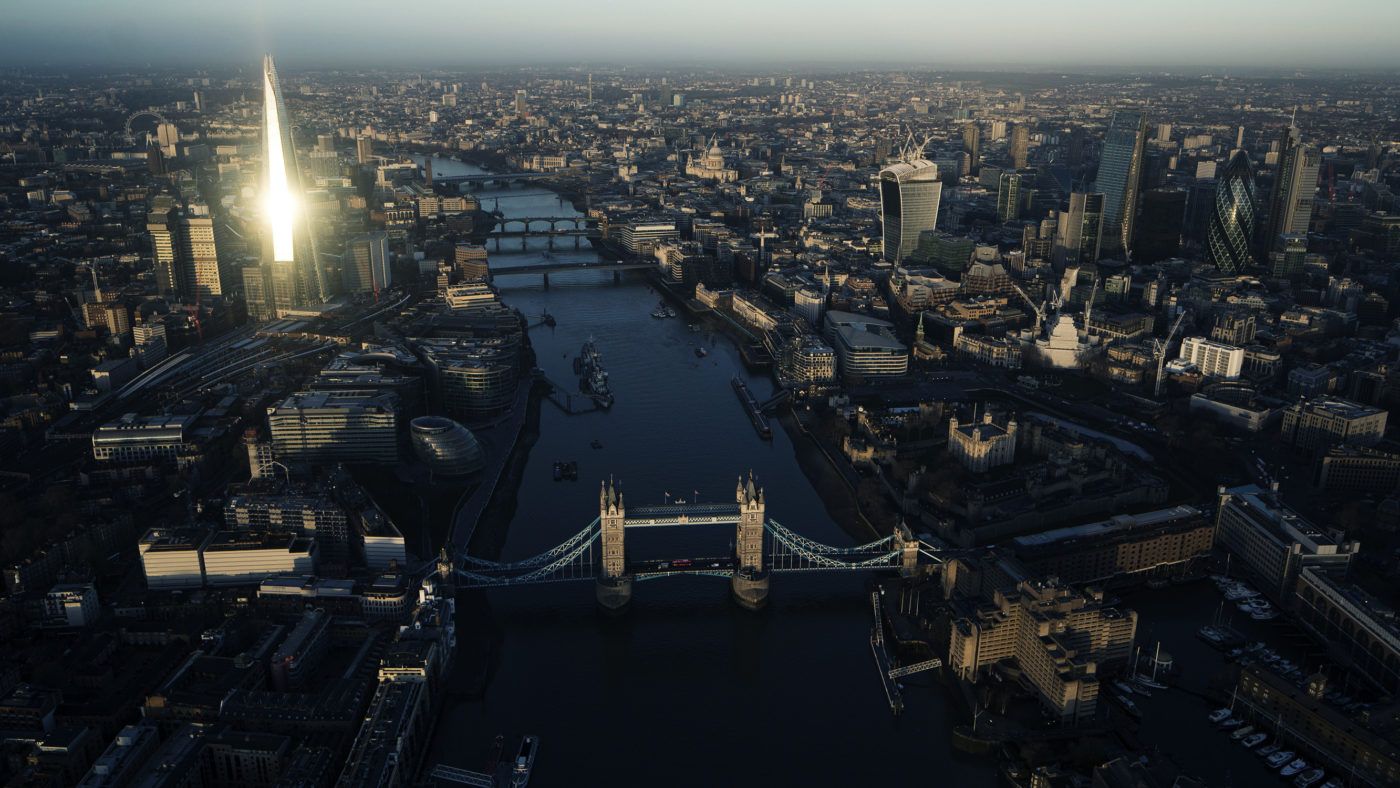I spent Germany’s election weekend in its financial capital, and found a country that is exceptionally comfortable in its own skin. At a time when Spain is fighting to maintain its territorial integrity, while Britain’s social divisions are laid bare by Brexit and Emmanuel Macron attempts to challenge France’s decades-old inertia, the federal republic is an oasis of tranquillity and wealth.
It is not simply that Germany’s jobless rate is at its lowest since reunification, while incomes are up and government indebtedness has entered a steady decline. Nor is it just that German workers are outstandingly productive, with gross value added per hour 36 per cent higher than in the UK. Nor that the cost of living is in fact considerably lower than across the Channel, with rents in 2-bedroom newbuild flats by the Main river, facing the ECB’s shiny new headquarters, at €1,500-2,000.
This is a country which has, over 25 years, successfully integrated 16 million of its citizens, formerly under the yoke of a polluting, repressive, intrusive and asbestos-ridden socialism. There remains a large socioeconomic gap between the former East and West, to be sure, but cultural homogeneity, labour mobility and capital investment by Germany’s industrial giants are all doing their bit to dent it.
And, contrary to Trumpian tales of social breakdown, the country’s large contingent of refugee arrivals live peacefully side-by-side with the native population. Those who will be quick to blame the rise of the nativist Alternative for Germany in Sunday’s vote should consider that the regions with the strongest backing for this party were also the ones with the lowest density of refugees in all of Germany.
On the eve of election day, I visited a fashionable speakeasy in Frankfurt’s red light district, a short walk from the city’s burgeoning financial quarter. The venue was a smoke-filled hotel cellar – Germans, inveterate smokers, are still allowed to light up indoors in certain venues – stuck between a methadone dispensary swarming with junkies and a Turkish döner joint of equally dubious clientele.
As I sipped on my old-fashioned while the prostitutes and the smackheads went about their business outside, I couldn’t help thinking that this is the way London must have felt in the late 1980s. Then, as now, a steely woman was on the verge of securing reelection, having in the previous few years rescued a country from decline and despondency. Then as now, that country looked forward with confidence, leading the way for others to follow.
Most significantly, the city I saw seemed to offer the setting for a glorious denouement: a place of contrasts, promise and rapid change. Junkies and yuppies, hookers and rookies, all converging into Frankfurt because that’s where stuff happens. This isn’t just London in the 80s. It’s L.A. in the 30s, New York in the 70s, and Paris in the 90s – the 1890s.
All of this got me wondering whether London might perhaps have something to fear from a city such as Frankfurt. It is true that, in terms of scale, the City’s competitors are not European financial centres but the hubs of Wall Street, Singapore and Hong Kong. Nobody is suggesting that the bulk of London’s banking and capital markets activity will shift to an EU jurisdiction as soon as Brexit happens.
But it is perfectly possible that an increasing share of banking, marketing and trading will move elsewhere in Europe. The City’s economic reach is global, but much of its talent is European, and it won’t stay in London at any price. Indeed, when comparing financial hubs across the EU, it is not a case of London against a collection of primitive alternatives with shallow capital markets and wild west legal systems.
The French, German and Spanish banking sectors are large and globally competitive. Dutch and German insurers and pension funds are on a par with their British rivals. Paris and Berlin have tech scenes which are as vibrant as London’s, if less mature.
We sometimes forget how swiftly a metropolis’ fortunes can change. As recently as the late 1970s, London was losing population, with tens of thousands each year fleeing from its socialist council in the run-up to the Winter of Discontent. Around the same time, New York City stood on the brink of bankruptcy, a predicament memorably captured by the New York Post headline: “Ford to city: drop dead.” It was largely the financial sector boom of the 1980s which spurred their renaissance.
Yet, in a world where urban workforces are impatient and globally mobile, nothing lasts forever. London still has many things going for it: plentiful job opportunities, an enviable location bestriding East and West, and a cultural scene unparalleled in Europe. But it isn’t obviously prepared to confront the challenges facing modern megacities. The woeful housing situation scarcely needs mention. As I write this, my airplane hovers over an ever-congested Heathrow airport, whose runway expansion needs were first diagnosed in 1968 but remain glaringly unaddressed.
As Frankfurters prepared to reelect Angela Merkel, London’s self-proclaimed globalist mayor shut the door on Uber, one of the age’s foremost symbols of urban living and a metonym for the millennial generation. Let that be Exhibit A in the story of how London lost its mojo.


